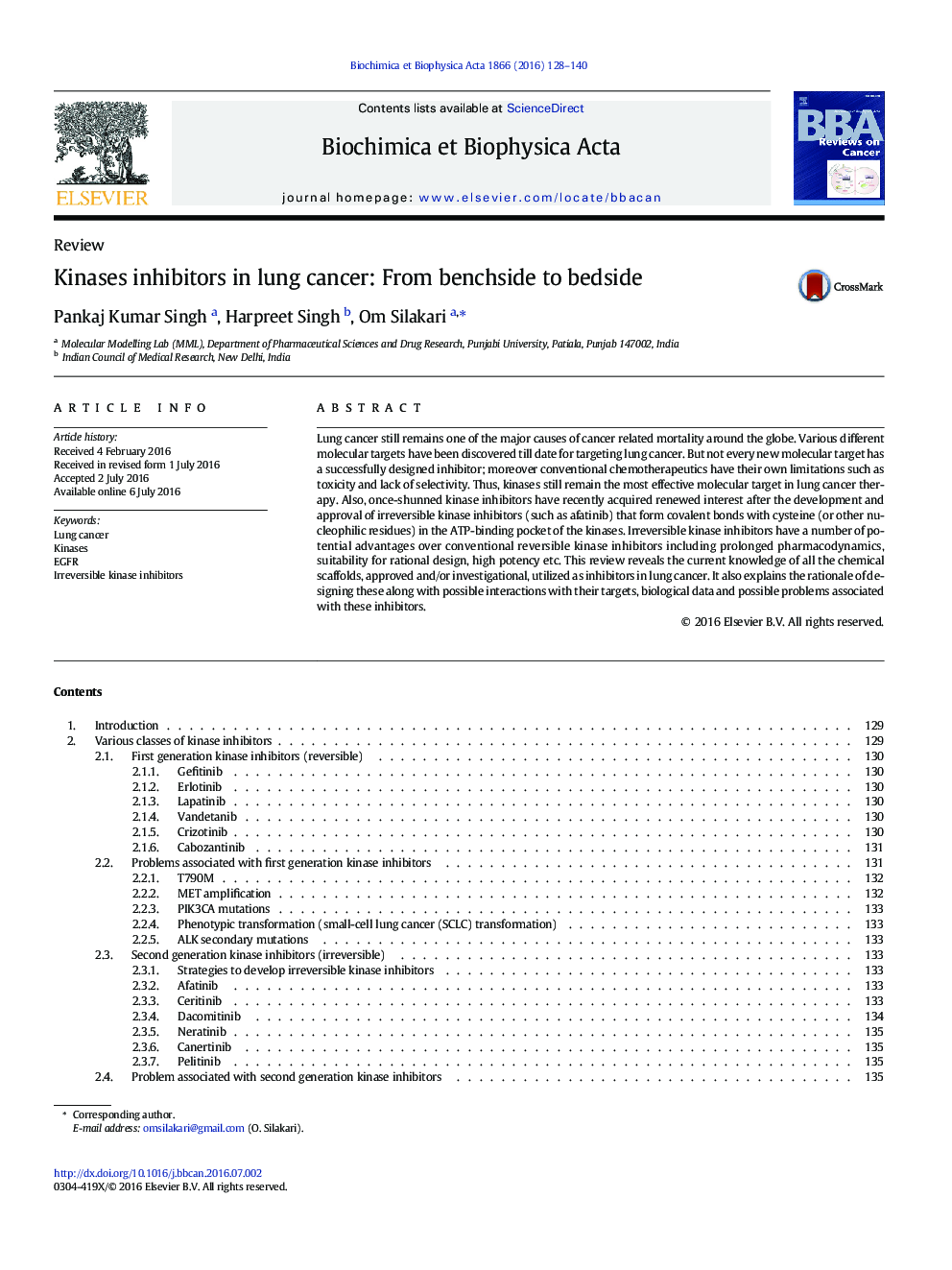| Article ID | Journal | Published Year | Pages | File Type |
|---|---|---|---|---|
| 2100820 | Biochimica et Biophysica Acta (BBA) - Reviews on Cancer | 2016 | 13 Pages |
Lung cancer still remains one of the major causes of cancer related mortality around the globe. Various different molecular targets have been discovered till date for targeting lung cancer. But not every new molecular target has a successfully designed inhibitor; moreover conventional chemotherapeutics have their own limitations such as toxicity and lack of selectivity. Thus, kinases still remain the most effective molecular target in lung cancer therapy. Also, once-shunned kinase inhibitors have recently acquired renewed interest after the development and approval of irreversible kinase inhibitors (such as afatinib) that form covalent bonds with cysteine (or other nucleophilic residues) in the ATP-binding pocket of the kinases. Irreversible kinase inhibitors have a number of potential advantages over conventional reversible kinase inhibitors including prolonged pharmacodynamics, suitability for rational design, high potency etc. This review reveals the current knowledge of all the chemical scaffolds, approved and/or investigational, utilized as inhibitors in lung cancer. It also explains the rationale of designing these along with possible interactions with their targets, biological data and possible problems associated with these inhibitors.
